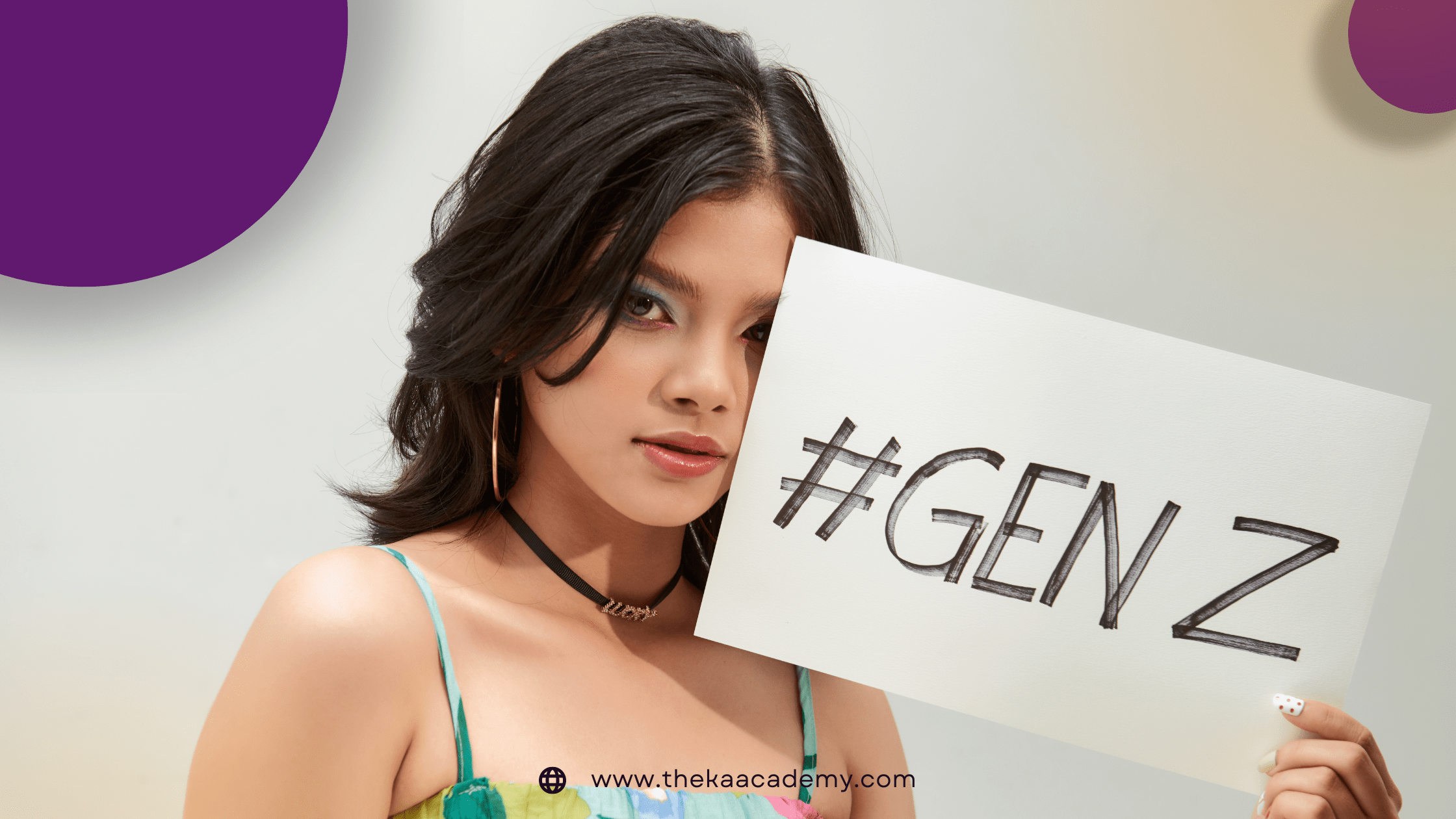
In the ever-evolving landscape of language, each generation brings its own unique set of words and phrases. Gen Z, those born roughly between the late 1990s and early 2010s, are no exception. They’ve introduced a slew of new terms, often born out of internet culture, social media, and a rapidly changing world. Here, we explore some popular Gen Z words, their origins, and their meanings in Bangla.

Lit
Origin: The term “lit” originally described something that was well-lit or illuminated. It later evolved in the hip-hop scene to mean something exciting or excellent.
Bangla Meaning: দারুণ (Dāruṇ)
FOMO
Origin: An acronym for “Fear Of Missing Out,” FOMO describes the anxiety one feels when they believe others are having fun without them.
Bangla Meaning: মিস করার ভয় (Mis kôrār bhôẏ)
Flex
Origin: While “flex” traditionally means to contract a muscle, Gen Z uses it to show off or brag about something.
Bangla Meaning: দম্ভ করা (Dômbh kôrā)
Ghosting
Origin: “Ghosting” emerged from online dating culture, where one person suddenly cuts off all communication without explanation.
Bangla Meaning: আচমকা যোগাযোগ বন্ধ করা (Āchômkā jôgaẏôg bôndhô kôrā)
Tea
Origin: “Tea” is slang for gossip or the latest news, derived from the phrase “spill the tea,” meaning to share gossip.
Bangla Meaning: গসিপ (Gôsip)
Mood
Origin: Originally just referring to a state of mind, “mood” is now used to express that something is relatable or that it reflects how one feels.
Bangla Meaning: মেজাজ (Mejāj)
Salty
Origin: “Salty” has long described a taste, but in Gen Z slang, it refers to someone being upset or bitter, usually over something minor.
Bangla Meaning: বিরক্ত (Birôktô)
Slay
Origin: Traditionally meaning to kill, in Gen Z terms, “slay” means to do something exceptionally well.
Bangla Meaning: অসাধারণ করা (Ŏsādhārôṇ kôrā)
Stan
Origin: Derived from the Eminem song “Stan,” it means an overzealous or obsessive fan.
Bangla Meaning: ভক্ত (Bhôktô)
Yeet
Origin: “Yeet” began as a dance move and evolved into an exclamation of excitement or to describe throwing something with force.
Bangla Meaning: নিক্ষেপ করা (Nikkhep kôrā)
Simp
Origin: “Simp” is derived from the word “simpleton” and refers to someone who does too much for someone they like, often at the expense of their own dignity.
Bangla Meaning: অতিরিক্ত অনুগামী (Ŏtirikto ônugāmi)
Bop
Origin: “Bop” refers to a song that is really good and makes you want to dance.
Bangla Meaning: দারুণ গান (Dāruṇ gān)
Cap/No Cap
Origin: “Cap” means a lie, and “no cap” means no lie or for real.
Bangla Meaning: মিথ্যা (Mithyā)/ সত্যি (Sôttiy)
Woke
Origin: “Woke” originally meant being awake but has come to mean being aware of social issues and injustices.
Bangla Meaning: সচেতন (Sôchetôn)
Shook
Origin: “Shook” is a form of the word “shake” and means to be shocked or surprised.
Bangla Meaning: হতবাক (Hôtbāk)
Low-key
Origin: “Low-key” means something done in a subtle or understated manner.
Bangla Meaning: গোপনে (Gôpone)
High-key
Origin: “High-key” is the opposite of “low-key,” meaning something done openly and with emphasis.
Bangla Meaning: প্রকাশ্যে (Prôkāshyē)
Vibe
Origin: “Vibe” refers to the atmosphere or feeling of a place, situation, or person.
Bangla Meaning: পরিবেশ (Pôribes)
Savage
Origin: “Savage” means being brutally honest or showing no mercy.
Bangla Meaning: নির্মম (Nirmôm)
Thirsty
Origin: “Thirsty” describes someone who is desperate, often for attention or validation.
Bangla Meaning: আকাঙ্ক্ষী (Ākānkṣi)
The words and phrases coined by Gen Z reflect their experiences and values, often emphasizing inclusivity, digital fluency, and social awareness. The rapid spread of these terms can be attributed to social media platforms like TikTok, Instagram, and Twitter, where trends can go viral overnight.
Understanding these words and their meanings can bridge generational gaps and foster better communication. As language continuously evolves, it’s fascinating to see how new words emerge, adapt, and integrate into everyday conversation, even finding their way into other languages like Bangla.
Gen Z’s contribution to the lexicon is a testament to the dynamic nature of language. Their words, with their origins and unique meanings, enrich our daily interactions and reflect the changing world we live in. Embracing these linguistic shifts helps us stay connected across generations and cultures, celebrating the diversity and creativity inherent in language.
The Secret to Advanced English Listening Skills